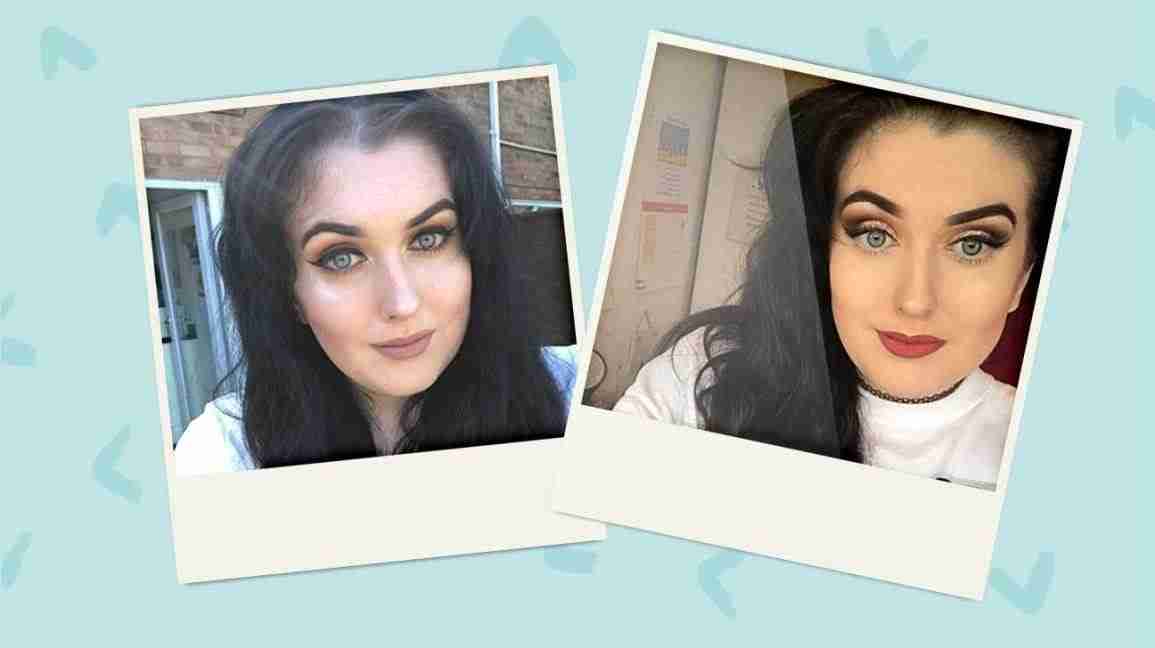My name is Olivia, and I used to run the Instagram page selfloveliv. I’m also a mental health blogger with bipolar disorder and I speak a lot about the stigma behind mental illness. I try to do as much as I can to raise awareness on different types of mental illnesses and make sure people realize that they’re not alone.
I love being social, speaking to other people who have the same illness as me, and being responsive. However, in the last few weeks I’ve been none of these things. I completely went off the grid, and lost complete control of my mental illness.
Using the ‘well technique’ to describe the effect of mental illnesses
The best way I can describe it is using the technique my mom uses when she explains mental illness to our family and friends. It's her “well” technique — as in the wishing well type of well. The well represents the negative clouds a mental illness can bring. How close a person is to the well represents our mental state.
For example: If the well is in the distance, away from me, that means I'm living life to the full. I’m on top of the world. Nothing can stop me and I’m incredible. Life is fantastic.
If I describe myself as “next to the well,” I'm okay — not great — but getting on with things and still in control.
If I feel like I’m in the well, it's bad. I'm probably in a corner crying, or standing still staring into space, wanting to die. Oh, what a joyous time.
Under the well? It’s code red. Code black even. Heck, it's code black hole of misery and despair and hellish nightmares. All my thoughts now revolve around death, my funeral, what songs I want there, the full works. It's not a good place to be for anyone involved.
So, with this in mind, let me explain why I went all “Mission Impossible: Ghost Protocol” on everybody.
Monday, September 4th, I wanted to kill myself
This wasn’t an unusual feeling for me. However, this feeling was so strong, I couldn't control it. I was at work, completely blindsided by my illness. Luckily, instead of wanting to act out on my plan of suicide, I went home and straight to bed.
The next few days were a huge blur.
But I still remember a few things. I remember turning off my message notifications because I didn’t want anybody to contact me. I didn't want anybody to know how bad I was. I then disabled my Instagram.
And I loved this account.
I loved connecting with people, I loved feeling like I was making a difference, and I loved being a part of a movement. Yet, as I scrolled through the app, I felt completely and utterly alone. I couldn’t bear to see people happy, enjoying their lives, living their lives to the full when I was feeling so lost. It made me feel as if I was failing.
People speak about recovery as this big end goal, when for me, it may never happen.
I will never recover from bipolar disorder. There’s no cure, no magic pill to transform me from a depressive zombie to a bright, happy, energetic fairy. It doesn't exist. So, seeing people speaking of recovery and how happy they were now, it made me feel angry and alone.
The problem snowballed into this cycle of wanting to be alone and not wanting to be lonely, but ultimately, I still felt lonely because I was alone. See my predicament?
But I can survive and I will return
As days passed, I felt more and more isolated from society but terrified to return. The longer I was away, the harder it was to go back on social media. What would I say? Would people understand? Would they want me back?
Would I be able to be honest and open and real?
The answer? Yes.
People nowadays are incredibly understanding, and especially those who've experienced the same feelings as me. Mental illness is a very real thing, and the more we talk about it, the less stigma there will be.
I will return to social media soon, in time, when the void leaves me alone. For now, I will be. I will breathe. And as the famous Gloria Gaynor said, I will survive.
Suicide prevention:
If you think someone is at immediate risk of self-harm or hurting another person:
- Call 911 or your local emergency number.
- Stay with the person until help arrives.
- Remove any guns, knives, medications, or other things that may cause harm.
- Listen, but don’t judge, argue, threaten, or yell.
If you think someone is considering suicide, or you are, get immediate help from a crisis or suicide prevention hotline. Try the National Suicide Prevention Lifeline at 800-273-8255.
Olivia — or Liv for short — is 24, from the United Kingdom, and a mental health blogger. She loves all things gothic, especially Halloween. She’s also a massive tattoo enthusiast, with over 40 so far. Her Instagram account, which may disappear from time to time, can be found here.
